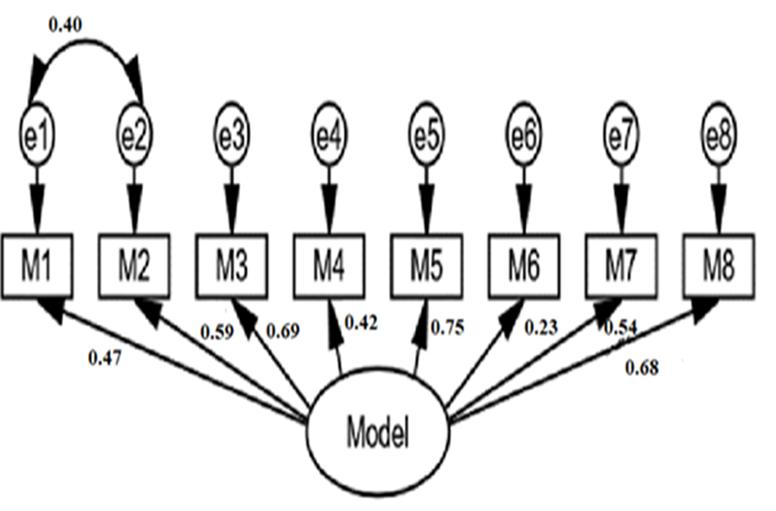
Population growth, industrialization and technological advances have significantly increased waste production, waste collection, transportation and disposal induced significant costs. Waste could be considered a resource that allows nations to reduce the consumption of primary raw materials, protect natural resources and improve economic revenues by reducing environmental pressures. Zero waste approach for sustainable waste management has been approved and implemented globally. The present study aimed to investigate the basic zero-waste management in Turkey. Thus a scale that included eight items was developed and validity and reliability of the scale were analyzed. Explanatory factor analysis (EFA) was initially applied. Then, the fitness of the model was tested with confirmatory factor analysis (CFA). Cronbach's α (internal consistency coefficient) was calculated as 0.778. Chi-square test, RMSEA, GFI and CFI fit indices were employed in the first-order confirmatory factor analysis conducted on the whole sample. Chi-square was calculated as 1.310 in confirmatory factor analysis. Also, comparative and absolute fit indices were determined as follows: RMSEA=0.035, GFI=0.976, CFI=0.987, RMR=0.030. The analysis of the findings revealed that “Zero Waste Management Behavior” scale fit indices demonstrated excellent model fit for the findings. Furthermore, there were no significant differences between one-way ANOVA and T test results on participant statements based on gender, while there were significant differences between these variables based on age, education level and the region of residence.
Total file downloads: 25